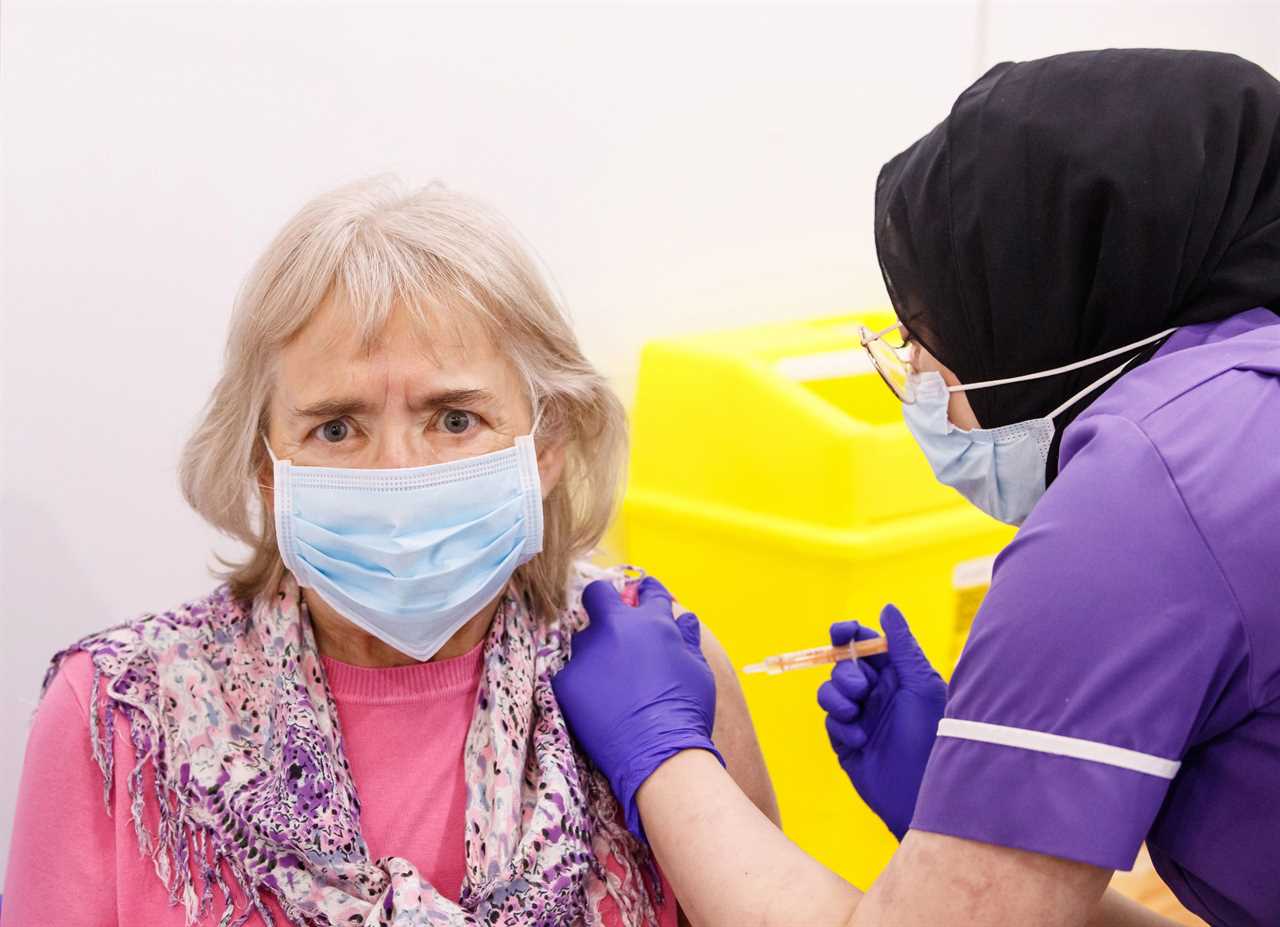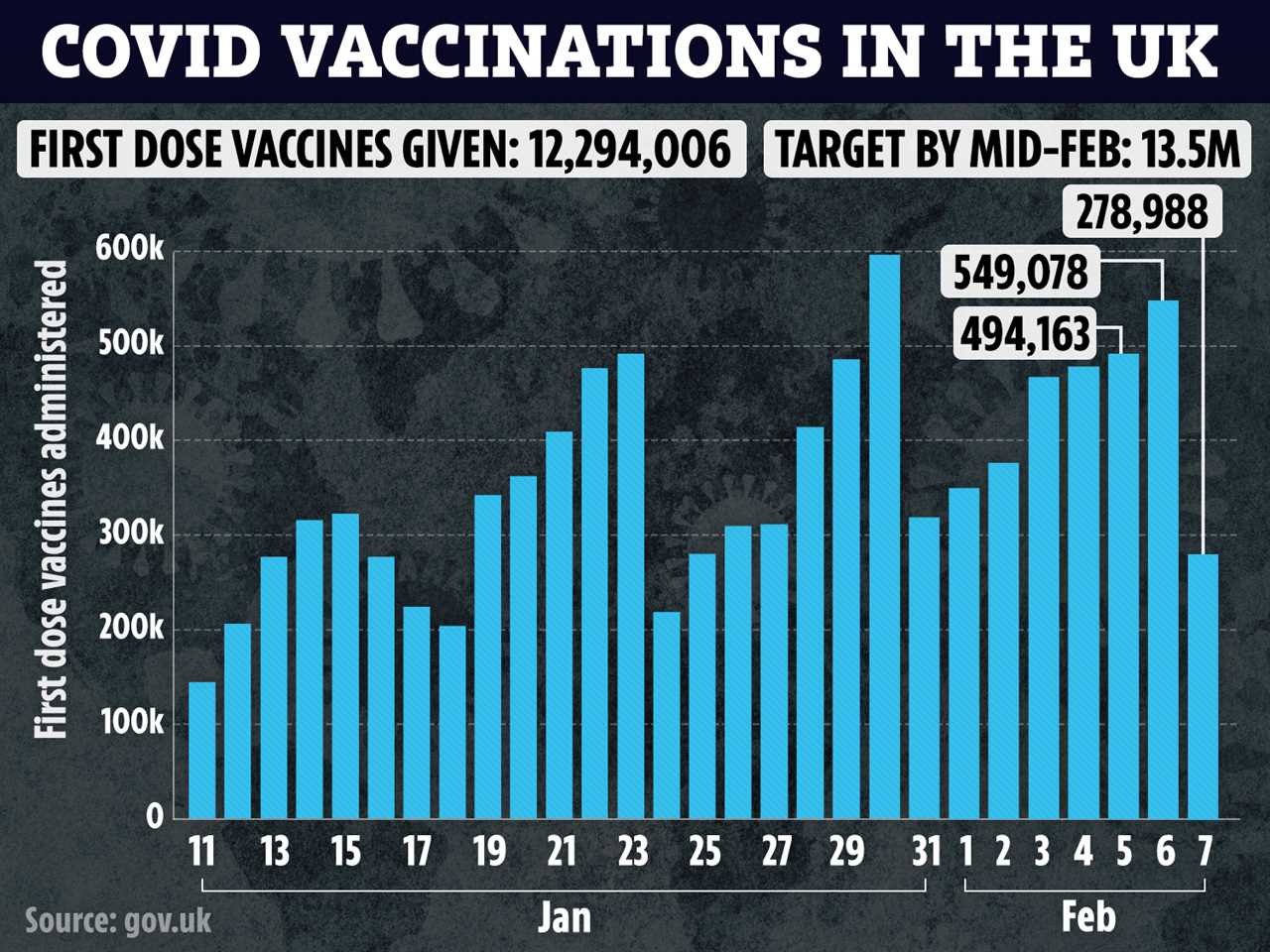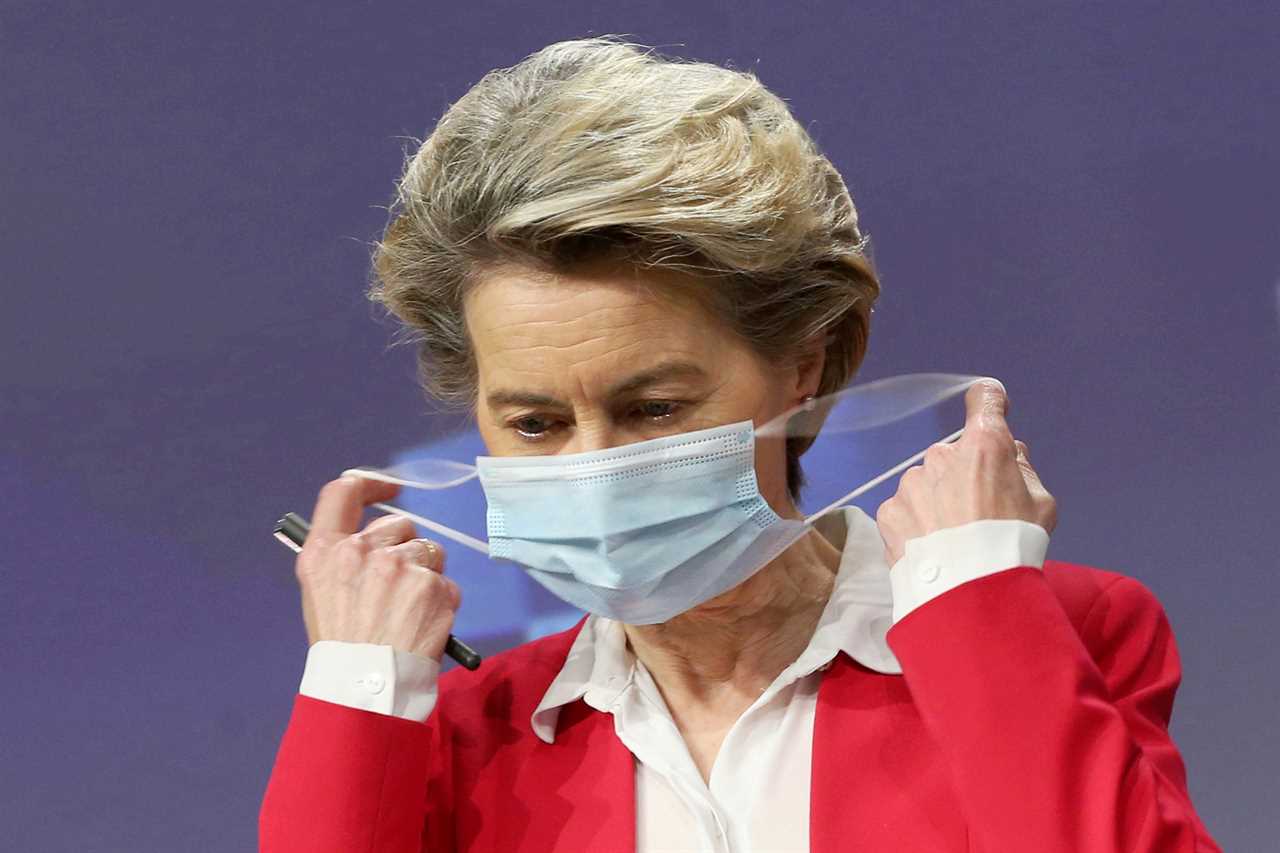THE World Health Organisation will soon back the use of the Oxford vaccine in adults of ALL ages, says a report.
It comes as a huge boost to the jab after multiple EU countries claimed it was ineffective in over-65s.


The WHO is now set to back the jab for use across all age groups and endorse the UK’s strategy of delaying doses for up to twelve weeks, according to the Daily Telegraph.
Dr Kate O’Brien, the organisation’s director of immunisation, vaccines and biologicals, yesterday hinted that the jab would soon gain approval.
She said: “There was a very positive view [in the committee] about proceeding with the use of the vaccine, including in settings where variants are circulating, with a big emphasis on collecting information that would really help.”
The endorsement of the global health agency would come as a huge boost to the jab after EU leaders repeatedly made baseless claims about its efficacy in the elderly population.
French President Emmanuel Macron infamously said the jab “doesn’t work” on people over 65 – despite the jab being approved for use across all age groups by European regulators.
And German newspaper Handelsblatt provoked fury for publishing a report claiming the vaccine was only eight per cent effective in over-65s, which was later rubbished by health experts.

Oxford and Astrazeneca denied the claims, citing official evidence that the jab in fact had a high level of efficacy in the group.
Data published in medical journal The Lancet in December showed a two dose regimen of the Oxford jab was 62 per cent effective in preventing serious illness.
The study said older age groups had been recruited later into the study so “efficacy data in these cohorts are currently limited by the small number of cases, but additional data will be available in future analyses.”
In that particular analysis, only 12 per cent of people were aged over 55.
But previous work published in November included findings for 160 people aged 56 to 69 years and 240 people aged 70 years and older.
This found that all age groups, including older people, had an immune response to the vaccine after two doses.
The government’s vaccine minister Nadhim Zahawi has also defended the jab, and said last month that it produces “almost 100 per cent protection from severe infection from the virus” for over-65s.
JAB ROW
It followed a furious row between the EU and Astrazeneca, after the developer announced it would not meet supply targets due to a production glitch at a hub in Belgium.
The Brit firm was forced to revise its initial target of delivering 80 million doses by the end of March to just 31 million – sparking fury in Brussels.
As the spat intensified, the bloc was forced into an embarrassing U-turn after threatening to block the export of millions of jabs to the UK – where the firm is continuing to ship doses.
It comes after Matt Hancock announced that nearly one in four Brits had been inoculated against the bug.
The Health Secretary told a Downing Street briefing that an incredible 12.2 million Brits had received the jab, in a huge boost to the government’s target of vaccinating the top four priority groups by February 15.
Addressing concerns that vaccines could be less effective against new variants of the virus, he said: “The evidence is that the existing vaccines have some effect against new variants, particularly preventing serious illness and mortality.”
To help combat new variants, he said Britain had entered into a partnership with the manufacturer CureVac to develop vaccines that could be quickly adapted as strains were identified.
He added: “We’ve agreed an initial supply of 50 million doses to add to the 400 million doses that are already in our vaccine portfolio.”
Did you miss our previous article...
https://trendinginthenews.com/covid-19/kay-burley-volunteers-at-london-food-bank-while-suspended-from-sky-news-for-lockdown-breach






